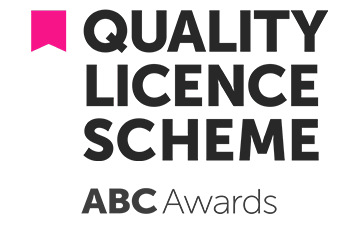

Business Management can be defined as the process of leading and directing all or part of an organisation, through the deployment and manipulation of resources (human, financial, material, intellectual or intangible).
Managers must also measure the performance of the organisation on a regular basis, review business strategies and plans, and ensure the appropriate actions are taken to meet the organisation's goals.
Management and Leadership are vital to organisational success in today's challenging global environment. It is the role of management to conceive and initiate strategies that create and sustain competitive differentiation and advantage.
This Business Management course has been designed to take you through the key concepts that underpin good management and ensure that you have the requisite knowledge to promote organisational success.
Unit 1 - Managing and Leadership
'Management is a practice rather than a science.' This is somewhat self-evident, but to try to make rules for successful management, in the same way as a chemical process, ignores the main element of variability -- namely the people involved. The activities and the role of a manager will vary depending on the organisation and its culture. In this unit you will review the key characteristics of management and leadership whilst looking at the range of styles of management that are employed in the modern day workplace.
By the end of this unit you will be able to:
Unit 2 - Performance at Work
In assessing training needs, you need to take into account both the needs of the organisation as well as the aspirations of the individual. Training solutions include custom-built courses, external courses, open learning, education programmes, secondment, coaching, on-the-job instruction and computer-based training. In evaluating training, senior management must consider internal measures (whether the training achieved the specified learning objectives), external measures (whether the training resulted in improved performance at work), and its general cost effectiveness (whether it added value to the company or organisation). These are some of the factors you will consider throughout this unit.
By the end of this unit you will be able to:
Unit 3 - Working, Planning and Organisation
Many businesses operate a traditional strategy in their approach to planning, mainly because their activities are relatively predictable and regular. With an agreed strategy, a detailed plan can be produced with short, medium and long-term goals, with details of what has to happen, who is involved, when it should happen, how it should happen, where it should happen, and why. In this unit, you will examine a number of tools and approaches which can be used to plan business activities, develop organisational strategies and analyse work tasks.
By the end of this unit you will be able to:
Unit 4 - Motivating the Workforce
Delivering a good performance at work has been shown to be a function of ability, experience, reward and, above all, motivation. We are purposive beings and we continually select goals which are important to us and seek to achieve them. It is this goal-directed activity we call motivation. Given the importance of employees as an organisational resource, it is obviously crucial that managers should understand the nature of motivation so that they can better manage those forces, both internal and external to individuals, that lead some to apply only minimal effort to their work tasks while others expend much greater effort and consequently are much more productive.
By the end of this unit you will be able to:
Unit 5 - Human Resource Management
Human resource management (HRM) is regarded by Porter as one of the primary activities in an organisation. It is responsible for one of the key inputs of the transformation process and it is also involved in all other functions and activities as they all have a human element. HRM is concerned with all aspects of people management in organisations, from the initial contact through to termination of employment (and beyond in some cases). The management of people in organisations is becoming more widely recognised as a factor critical to organisational success (Storey, 1992, p. 46). The workforce can be regarded as an organisation's greatest asset and is crucial in achieving and sustaining competitive advantage.
In this unit, we consider the background to and philosophy of HRM and will concentrate on some of the tasks carried out that can influence the effectiveness of people within the work environment.
By the end of this unit you will be able to:
Unit 6 - Business Strategies
Every year in Britain thousands of new businesses are created. A few will grow to become global companies employing thousands of people, others will never make the world stage; in fact, the majority will cease trading within two or three years.
In this unit, we look at some of the tools that we can use to decide on the strategy. As you will see, the tools we describe are those which link the various functions of the business and are to do with operating the business as a complete organisation rather than as a collection of functions or departments. The business strategy concerns the overall direction of the organisation. Here, we consider the operational or functional strategies that contribute to the business strategy.
We start by looking at key issues involved in setting strategy and at a process for choosing the strategy.
By the end of this unit you will be able to:
This course has been accredited by Online Academies. On successful completion of this course you will be able to download or print off a PDF of your Online Academies Certificate (please note: you will also be given the opportunity to have a hard copy of the certificate printed off and posted out to you for a small additional charge). If you would like to view a sample of the certificate, please click here.

Online Academy work with Quality Licence Scheme (Quality Licence Scheme). The Quality Licence Scheme is part of the Skills and Education Group, a charitable organisation that unites education and skills-orientated organisations that share similar values and objectives. With more than 100 years of collective experience, the Skills and Education Group’s strategic partnerships create opportunities to inform, influence and represent the wider education and skills sector.
At the conclusion of each module there is a multiple choice question assessment. This will help you remember the main points of the lesson and act as a check that you have retained the essential knowledge and understanding of that particular section. The results can be seen instantaneously and you can correct wrong answers. When the result is satisfactory you can progress to the next module.
Once you have successfully completed all the modules for your course you will be awarded:
A Diploma issued by Online Academies



